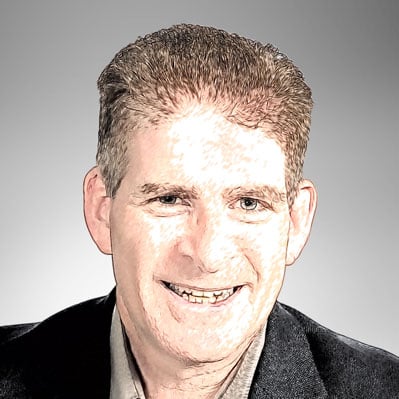This ISA author Q&A was edited by Joel Don, ISA’s community manager. Applying FOUNDATION Fieldbus is co-authored by Bharat Ratilal (B.R.) Mehta and Jaganmohan (Y.J.) Reddy. In this Q&A feature, the authors provide important insights on the book’s value and significance.
Q. Overall, why did you feel it was important to write this book? What overarching value does this book provide readers?
A. FOUNDATION Fieldbus (FF) is a continuously evolving technology and there is a wide range of information available in the Internet, but there is no single source of information that is needed for a professional who is going to implement the technology. The documents available are either standards or vendor documents or some white papers on maintenance, etc. For a professional in a plant, who is planning to use the Fieldbus as a technology, he or she needs information on all aspects—ranging from the technology through the lifecycle and economics, viability and so on. This book addresses that gap in the industry. This book was written after implementing this technology in a refinery and petrochemicals complex on massive scale, for the first time in this type of industry.
Q. What does this book offer—in terms of content covered—that other books on the subject do not? In other words, what are the “differentiators” of this book? What makes it different than other books on the subject?
A. The book offers content covered from a project perspective, which most of the other books do not cover. The book is authored by professionals who have extensive experience in implementing the largest adaptation of the technology. Because ‘learning by doing’ is documented in the book, the book provides real-world value and will guide more people to adopt the technology. In addition, the book addresses every stage of project life cycle, including basic engineering, detailed engineering, procurement, construction, pre-commissioning, commissioning and maintenance of the plant. There are other factors that differentiate the book from others on the subject. The book’s important topics—whether it’s the optimization of the technology, engineering design considerations, and reliability improvement through engineering—are illustrated in very specific ways, helping readers understand the material more easily.
Q. What specific challenges does the book help engineers solve?
A. The book covers the different lifecycle phases of the automation project, with the FF technology, the economic benefits of implementation and some of the best practices learned through the project lifecycle.
Q. What kind of automation professionals and degree of experience does the book most apply to…or is it applicable for new/junior-level as well as highly experienced engineers? Why so?
A. The book is applicable for both senior-level and junior-level instrumentation project engineers and college students who have completed their courses on instrumentation and control. It can also be used by highly experienced professionals as a reference or refresher and provided added perspective on the practicalities of implementation.
Q. Are there any specific sections/aspects of the book you would like to particularly highlight? If so, why?
A. I suggest readers pay particular attention to the sections on control in the field, control in the host, optimization of the macro cycles, engineering considerations, and economic benefits that can be attributed to qualitative and quantitative improvements.
Q. Would you like to add any other comments or perspectives about the book?
A. FOUNDATION Fieldbus is getting adopted worldwide in more and more projects. There are many of them at the implementation stage. We don’t see these technologies being taught at the college level to students. We expect colleges to adopt books like ours in their curriculum to better prepare the students for the changing needs of the industry and to drive innovation.
About the Author
B.R. Mehta, Ph.D., the Senior Vice President of Reliance Industries Ltd., in Mumbai, India, possesses more than 43 years of experience in the refinery and petrochemicals industry. Dr. Mehta has contributed to control systems and instrumentation engineering projects for Patalganga, Hazira, and Jamnagar Refinery & Petrochemicals during his more than 30-year at Reliance Industries. Before joining Reliance, he worked at Agro-Chemical & Food Co., in Kenya, as Chief Instrumentation Engineer and at Indian Petrochemicals Ltd., Vadodara, for 11 years as an instrument engineer. He is currently directing the design and engineering department for control systems and instrumentation. He is the nominated chairman of the End User Council of Fieldbus Foundation (FF) in India, and is a member of the End User Advisory Council worldwide. Dr. Mehta became an ISA Fellow in 2013, honored for his innovative design and implementation of FF technology in major refinery and petro-chemical complexes. He is the district vice president of D14 for ISA. He holds a doctorate degree in professional entrepreneurship, and majored in engineering management at the European Continental University.
About the Author
Y. J. Reddy, Ph.D., possesses a wealth of experience in the field of industrial automation and control. He graduated in 1997 with a degree in electronics and instrumentation engineering from KITS, Warangal. He also earned a master’s degree in software systems from BITS, Pilani, and a doctorate degree in electronics and communication engineering from JNTUK, India. Earlier in his career, he worked at JOCIL Ltd, a subsidiary of The Andhra Sugars Limited, as an engineer (instrumentation), responsible for maintenance and project activities of the instrumentation and control engineering team. He is currently working as an engineering manager for process measurement and control systems at HTS Labs India. He is a member of ISA and IETE and is a Certified Automation Professional (CAP) and Certified Systems Engineering Professional.




